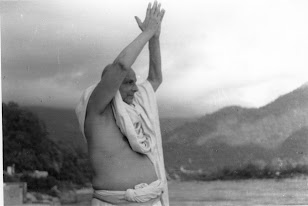
Pratyahara is abstraction or withdrawal of the senses. From it starts the real inner spiritual life and the external world is shut out. Yama, niyama, asana, pranayama all prepare the aspirant for the practice of pratyahara. The mind is rendered calm by the practice of brahmacharya (celibacy) and aparigraha (non-covetousness). Asana and pranayama squeeze out the rajas (restlessness). Pranayama checks the out-going tendencies of the mind. Now the mind can easily be detached.
Pratyahara gives inner spiritual strength and great peace of mind. It develops will power and removes all sorts of distractions. An unsteady asana (posture), too much talking, too much mixing, too much work, too much food, too much walking, too much of activity (vyavahara) and poking one's nose into the affairs of others, all produce much distraction of the mind and stand in the way of the practice of pratyahara.
When you mix with people, again and again, fix the mind on your lakshya (point of concentration). Rest in your background of thought - whether saguna (form) or abstract vedantic image. This serves as a strong fortress to protect you from the onslaught of worldly thoughts.
Keep a steady pose, be regular in the practice of pranayama, cultivate vairagya (dispassion), vichara (enquiry) and viveka (wisdom). Always look at the defects of a sensual life. Develop serenity, contentment, patience. Be persevering, tenacious and ever-vigilant. Pray to the Lord. Sing. Do japa (repetition of God's name). Obtain divine grace. Observe mouna (silence), moderation in diet, and seclusion. Practise celibacy. Stick to resolves. Live in seclusion. Be bold. Be pure. Be wise. Have satsanga (holy company). Give up evil company. Then you will have success in pratyahara.
Concentration is the direct method to get success in pratyahara. Sit in a quiet room and withdraw the senses. Have a spiritual background of thought and the mind will rest in this when released from work. Japa is another method. Divide the mind. Fix one portion on God and let the other portion work. Sightless gaze is also another aid. Feel that this world is the manifestation of the Lord. Understand that lasting happiness can only be had in the Atman within.
It is difficult to say where pratyahara ends and concentration begins. Concentration for twenty seconds makes one meditation and twenty such meditations make one samadhi (super-conscious state). But this is only for beginners.
















